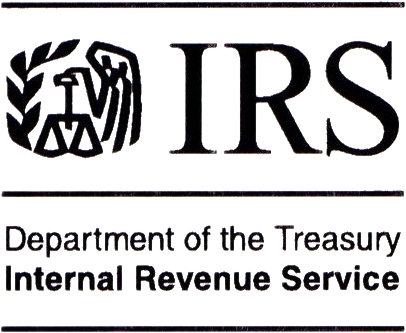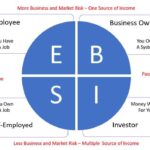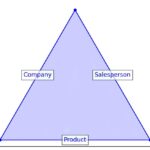When Robert Kiyosaki, the author of Rich Dad Poor Dad, said, “It is not how much money you make but how much you get to keep,” he was highlighting one of the most overlooked strategies for wealth building: taxes.
For most employees, taxes are an unavoidable certainty. They earn their income, and before they even see their paycheck, a chunk is withheld for federal and state taxes, and Social Security and Medicare (FICA). But if you’re a business owner, the tax game works a little differently—and much more favorably.
Let’s break this down with a real-world example. Say you have a cell phone you use regularly to communicate with clients or manage business operations. If you’re an employee, you likely pay that $100 monthly phone bill with money left over after taxes have been taken out. In effect, that means you had to earn roughly $200 (depending on your tax bracket) just to have $100 left in your pocket to cover the bill.
Now let’s say you’re self-employed or run a small business. That same $100 phone bill, if legitimately tied to business use, becomes a deductible business expense. You pay it with pre-tax dollars—meaning the IRS never taxes the money used to pay the bill. That’s a 50% savings just by understanding how to apply the tax code.
This isn’t about cheating the system—it’s about understanding and legally leveraging the rules available to business owners.
The Power of Pre-Tax Dollars
Pre-tax spending is one of the most powerful financial tools available to entrepreneurs. Every dollar you can deduct as a legitimate business expense is a dollar not subject to income tax or self-employment tax. That means more money stays in your business—and in your control.
Eligible business expenses include:
- Cell phone and internet used for business
- Mileage and vehicle expenses for business travel
- Meals and entertainment with clients
- Business-related education and training
- Office supplies and home office use
These deductions add up quickly and can reduce your taxable income dramatically. For employees, many of these expenses are out-of-pocket with no tax relief unless they surpass a certain percentage of income—and even then, only if you itemize.
Business Ownership = Tax Advantage
The IRS recognizes that small business owners assume more risk than employees. You’re responsible for generating your own income, managing business operations, hiring help, and often investing your own capital. In exchange, the government offers some tax incentives that reduce your overall tax liability if you know how to use them.
Understanding the tax advantages of being a business owner isn’t optional—it’s essential. According to the IRS, business owners can deduct “ordinary and necessary expenses” that help the business operate and generate income.
Yet many entrepreneurs miss out on potential savings simply because they don’t understand the tax code or they wait until tax time to think about taxes at all.
Shift Your Mindset: Think Like the Rich
Wealthy individuals and successful entrepreneurs don’t just think about how to make money—they obsess over how to keep it. That’s why understanding taxes and how to structure your business is key. They invest in good tax advisors, understand deductions, and track their expenses diligently.
The takeaway? Taxes are not something you think about once a year. As a business owner, tax planning should be a year-round activity.
Final Thoughts
Favorable tax treatment isn’t a loophole—it’s one of the biggest rewards for taking the leap into entrepreneurship. If you’re a small business owner or considering self-employment, learning how to legally reduce your tax liability could make a major difference in your bottom line.
It’s not just about making more money. It’s about keeping more of it.
Do you know how much you’re losing each year by not using the tax code to your advantage?












